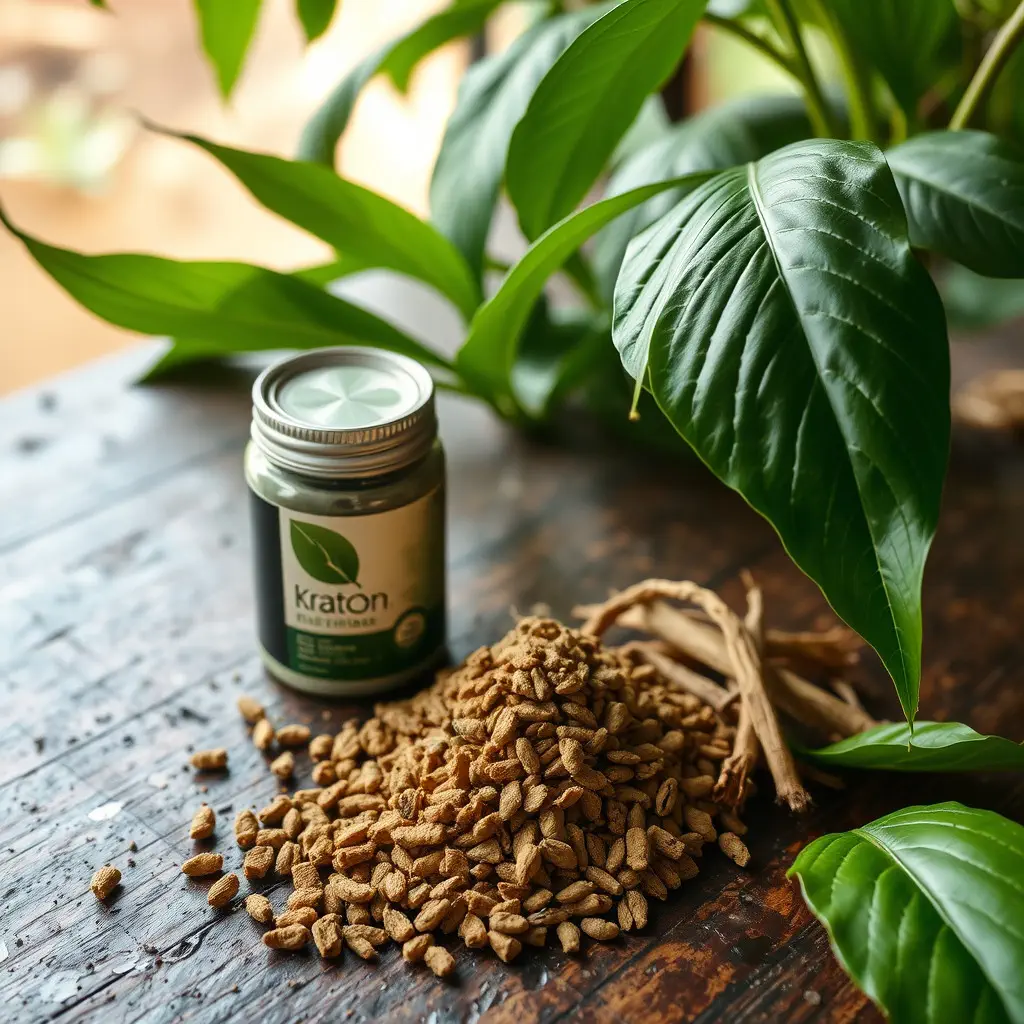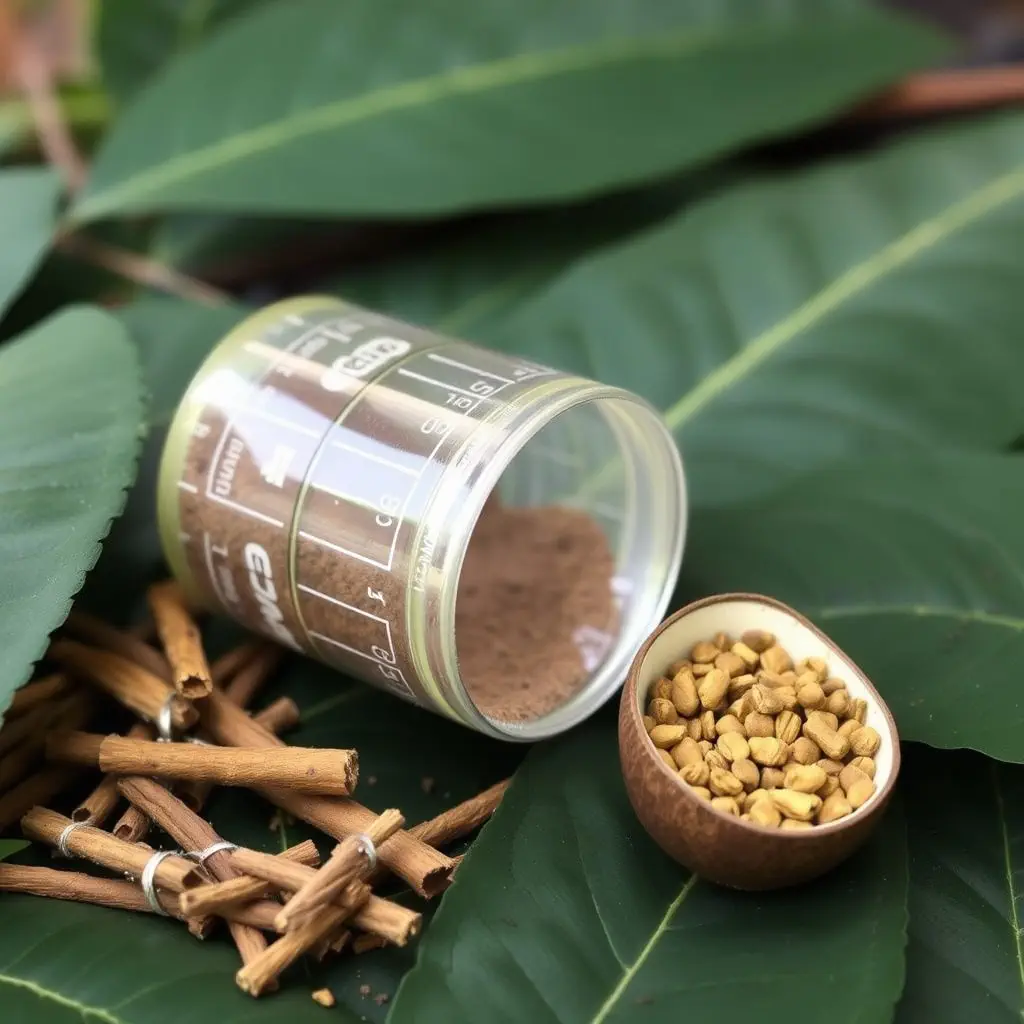Endurance training is critical for athletes and those in the military for maintaining peak performance and health. Kratom, derived from the Mitragyna speciosa tree, has gained attention as a potential aid for endurance due to its active compounds mitragynine and 7-hydroxymitragynine, which may help manage pain and fatigue. Some athletes and military personnel report that kratom helps them sustain longer training sessions. While research is ongoing, the interest in kratom within the military for enhancing performance is growing. However, it's important to note that the military's stance on kratom is nuanced, with no explicit prohibition but also a need for caution due to its varying effects and the complex legal status by region. The defense sector is carefully evaluating kratom's role in improving soldier performance and safety while ensuring compliance with drug testing policies—specifically, does the military test for kratom? Current protocols do not automatically flag kratom, but users must stay informed about its evolving legal standing and adhere to military regulations to avoid negative consequences. It's essential for those considering kratom to consult with medical and legal experts to navigate this issue responsibly and safely within the context of endurance training and military service.
Exploring the intersection of endurance training and kratom use, this article delves into how this botanical substance can potentially augment physical performance. With a particular focus on its implications within the military, we examine the current testing policies for kratom, its role in enhancing stamina, and the crafting of regimens that align with stringent military standards. This exploration sheds light on the transformative potential of kratom for those seeking to elevate their endurance capabilities while adhering to the rigorous demands of military service.
- Unpacking the Relationship Between Endurance Training and Kratom Use: A Closer Look
- The Role of Kratom in Enhancing Physical Performance: A Military Perspective on Its Usage and Testing Policies
- Crafting a Kratom-Informed Endurance Training Regimen: Safety, Efficacy, and Compliance with Military Standards
Unpacking the Relationship Between Endurance Training and Kratom Use: A Closer Look

Endurance training is a cornerstone of athletic performance and overall physical health, pushing the human body to adapt and improve its efficiency and capacity for sustained effort. The integration of kratom, a natural alkaloid derived from the leaves of the Mitragyna speciosa tree, has emerged as a topic of interest among athletes and fitness enthusiasts interested in enhancing their endurance. Kratom’s alkaloids, such as mitragynine and 7-hydroxymitragynine, are known to influence the body’s pain reception, fatigue, and mood regulation, which can be advantageous for those engaging in long durations of physical activity.
Research into kratom’s effects on endurance is ongoing, with preliminary studies suggesting potential benefits. For instance, some users report that kratom helps to diminish the perception of fatigue, thereby allowing for longer and more intense training sessions. This can be particularly beneficial in disciplines where endurance is paramount, such as marathon running or military operations. The military’s interest in performance-enhancing substances, including the question of whether they test for kratom use, reflects the critical importance of endurance in their missions. As the military seeks to optimize soldier performance and safety, understanding how substances like kratom might affect physical and mental endurance becomes increasingly pertinent. It is important for athletes and service members to approach kratom with caution, as its effects can vary widely among individuals, and its long-term use remains a subject of scrutiny and regulation. Users must navigate the legalities surrounding kratom, which are subject to change and differ by jurisdiction, ensuring they remain within the bounds of their organization’s policies and local laws.
The Role of Kratom in Enhancing Physical Performance: A Military Perspective on Its Usage and Testing Policies

Kratom, a tropical evergreen tree native to Southeast Asia, has garnered attention within various physical performance realms, including military applications. Its leaves contain compounds, predominantly mitragynine and 7-hydroxymitragynine, which are known for their stimulant and analgesic properties. From an endurance perspective, kratom can potentially enhance physical capabilities by mitigating fatigue, increasing energy levels, and alleviating pain during rigorous training or operations. The military’s interest in kratom stems from its potential to augment the stamina and performance of soldiers who operate under physically demanding and often unpredictable conditions.
The integration of kratom into physical performance regimens within military contexts has necessitated a careful approach regarding testing policies. Does the military test for kratom? This question is at the forefront of discussions on its use, as the defense establishment seeks to balance the potential benefits against the risks of misuse or dependency. While kratom is not a new substance in the military’s scope of prohibited substances, its presence on the radar reflects the evolving nature of performance enhancement and the need for updated testing protocols. The military’s testing policies are designed to maintain operational readiness and the safety and integrity of service members, ensuring that any enhancement strategies, including those involving kratom, align with their commitment to health and discipline. As research continues to unfold, the military’s stance on kratom may evolve, reflecting a dynamic approach to optimizing physical performance while adhering to strict regulatory standards.
Crafting a Kratom-Informed Endurance Training Regimen: Safety, Efficacy, and Compliance with Military Standards

Integrating Kratom into an endurance training regimen, particularly one aimed at meeting or exceeding military standards, requires careful consideration of safety, efficacy, and compliance with established protocols. Kratom, a plant-based mitragynine speciosa, has been recognized for its potential ergogenic effects, which may enhance muscular endurance and stamina. However, the use of Kratom by military personnel raises questions about its detection in drug tests and the adherence to military policies. Does the military test for Kratom? This is a critical aspect to address because the presence of Kratom in a soldier’s system could lead to disciplinary action or discharge, regardless of its performance-enhancing qualities. It is imperative that any training regimen incorporating Kratom remains within the bounds of legal and ethical standards set forth by military institutions.
To craft a Kratom-informed endurance training program that aligns with military demands, one must first understand the legalities surrounding Kratom use within their specific branch of service. Consulting with medical professionals and legal advisors is essential to ensure compliance and to navigate any potential issues related to drug testing policies. The dosage, frequency of use, and the type of Kratom strain selected should be based on scientific research and personal tolerance levels. Additionally, the training program itself should be structured to include a variety of endurance-building exercises such as long-duration cardiovascular workouts, interval training, and strength conditioning. These exercises, combined with careful Kratom usage, can contribute to significant improvements in endurance while maintaining adherence to military standards. Safety protocols must also be established to monitor any adverse effects associated with Kratom consumption, ensuring the well-being of the individual and the integrity of their performance.
In conclusion, the intricate interplay between endurance training and the strategic incorporation of kratom use merits careful scrutiny, particularly within the context of high-performance environments such as the military. The article has delved into the multifaceted relationship between these two elements, highlighting the potential benefits of kratom in enhancing physical endurance while recognizing the stringent testing policies that govern its use in military settings, such as does the military test for kratom. By meticulously crafting a regimen that aligns with safety, efficacy, and compliance standards, athletes and service members can potentially reap the advantages of this approach, provided it is used responsibly. It is crucial for individuals to consult with healthcare professionals and adhere to established guidelines to navigate this relationship effectively and ethically, ensuring optimal performance outcomes without compromising integrity or health.






